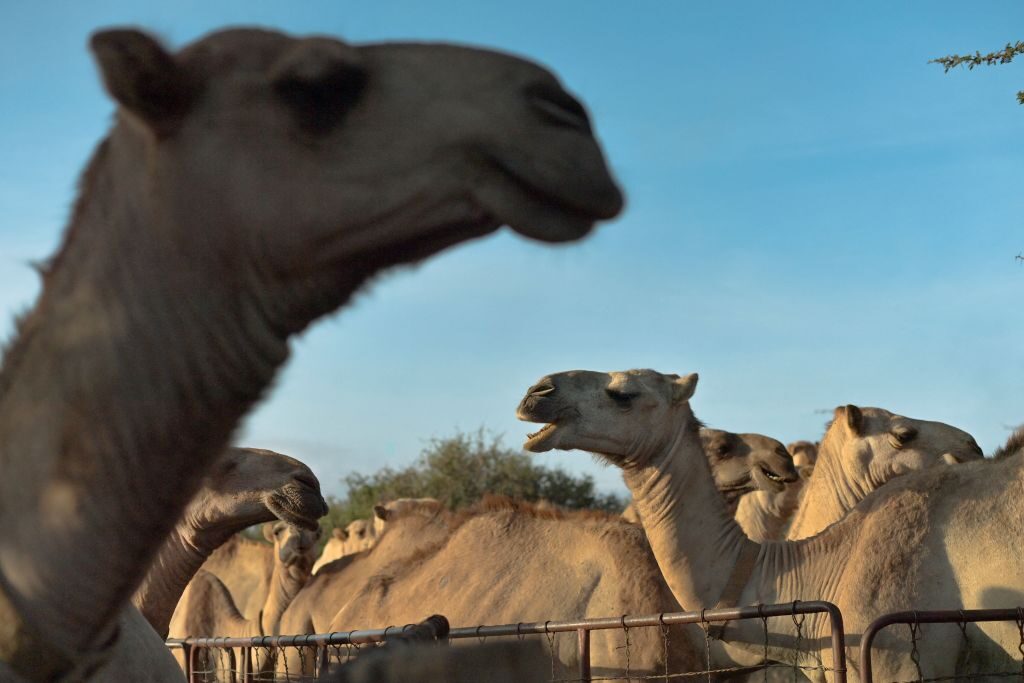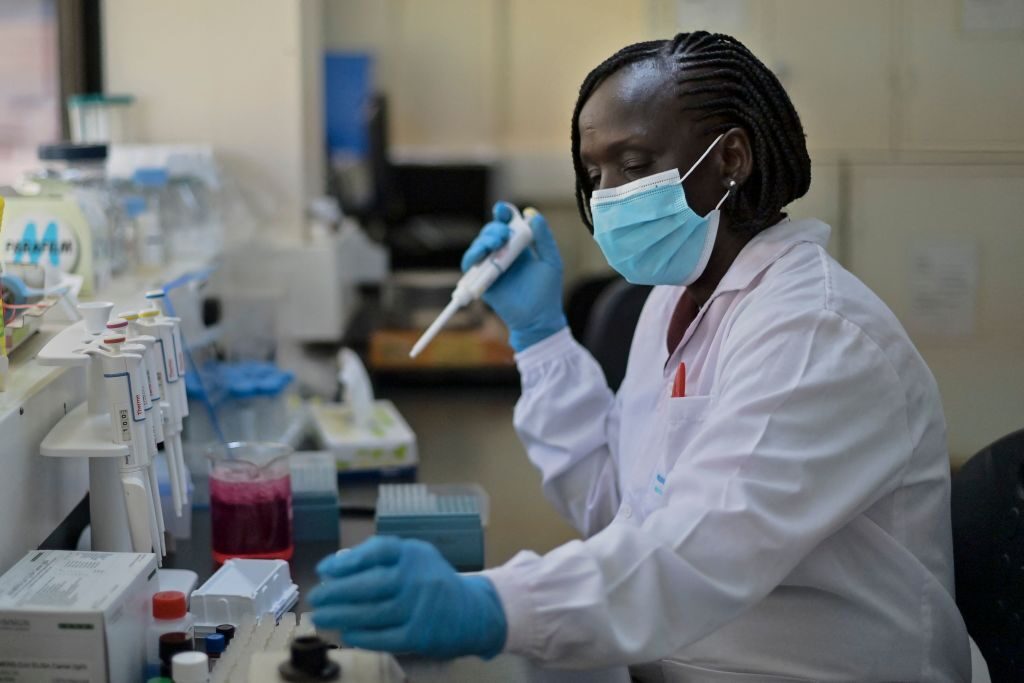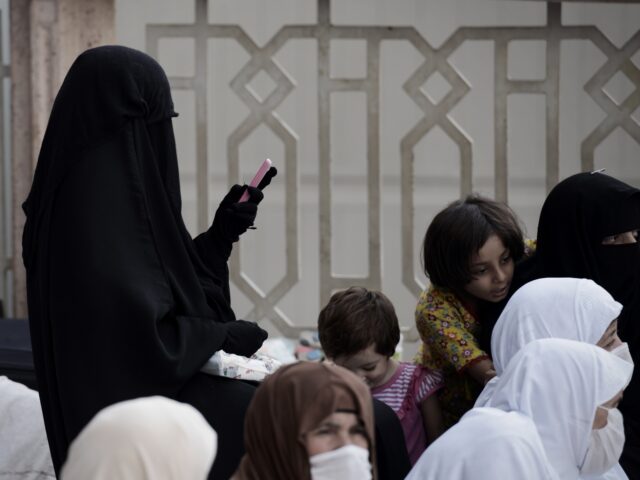Saudi Arabia documented four cases of Middle East Respiratory Syndrome (MERS) in the past six months, the Saudi news outlet al-Arabiya, citing the World Health Organization (W.H.O.) reported on Tuesday.
MERS is a respiratory coronavirus infection similar to the Wuhan coronavirus, which fueled a pandemic that has killed an estimated 7 million people since late 2019, not counting excess mortality statistics and a suspected high number of coronavirus deaths hidden by the Chinese Communist Party. MERS is believed to be far less contagious than the Wuhan coronavirus, however, and has a much smaller documented rate of infection and death.
As of 2012, when scientists first discovered MERS, doctors have documented 939 deaths attributed to the virus in 27 countries, most of them in the Middle East. According to al-Arabiya, 858 deaths – 91 percent of known deaths – were reported in Saudi Arabia out of a total of 2,200 cases there.
MERS most often causes fever, aches, cough, and other symptoms of respiratory illness. In less common cases, it can cause diarrhea and other gastrointestinal issues and may lead to pneumonia, other severe illness, and death. The W.H.O. has estimated that 36 percent of those diagnosed with MERS have died.

Camels stand in their pens as they wait to be released to pasture at the International Livestock Research Institute (ILRI) ranch, where the camels are regularly tested for the Middle East Respiratory Syndrome (MERS) virus as scientists monitor for indications of possible transition of the microbes from animal to humans, at the Kapiti plains ranch, located in Machakos County, on March 24, 2021. (TONY KARUMBA/AFP via Getty Images)
A new MERS outbreak in Saudi Arabia could pose a higher international risk than during previous outbreaks, however, as Saudi Arabia pursues its “Vision 2030” initiative to diversify its economy away from fossil fuels, leaning heavily into attracting international business and tourism. Riyadh is investing intensely in turning Saudi Arabia into a tourism destination comparable to Miami, Florida, Crown Prince Mohammed bin Salman said in an interview in June, building a brand-new “megacity” called Neom fully equipped with festival grounds, luxury hotels, a high-tech innovation hub, and a ski resort, among other amenities.
Al-Arabiya cited the W.H.O.’s regular update on MERS published on February 16 to confirm the two deaths attributable to the virus in the past six months. According to the United Nations agency, “from 13 August 2023 to 1 February 2024, four laboratory-confirmed cases of MERS-CoV, including two deaths, were reported to WHO by the Ministry of Health of the KSA [Saudi Arabia].”
The W.H.O. identified all four patients, two men and two women, as having documented co-morbidities – health problems that exacerbate the damage of a MERS infection – and aged between 59 to 93 years old. It noted that two of the four did not appear to have any known exposure to known sources of MERS.
MERS is a coronavirus found in camels and spreads through the drinking of camel milk, eating camel meat, or among camel owners exposed to the animals and their bodily fluids. “Of the four cases, one was a camel owner, and another one had a history of indirect contact with dromedary camels as their family members were camel owners,” W.H.O. observed.
The agency called the threat of a larger MERS outbreak “moderate at both the global and regional level” and warned against the consumption of untreated or undercooked camel products.
“People should avoid drinking raw camel milk, contact with camel urine or eating camel meat that has not been thoroughly cooked,” the W.H.O. suggested. “Animal products that are processed appropriately through cooking or pasteurization are safe for consumption. Foods that have gone through these processes should be handled with care to avoid cross contamination with uncooked/unsafe foods.”
It added, however, a warning against stigmatizing camel foods: “Camel meat and camel milk are nutritious products that can continue to be consumed after cooking, pasteurization or other thermal treatments.”

Alice Kiyong’a, a research associate and biologist, analyses serum drawn from a camel’s blood for the Middle East Respiratory Syndrome (MERS) virus at the International Livestock Research Institute (ILRI) laboratories, where scientists monitor for indications of possible transition of the microbes from animal to humans, in Nairobi on March 24, 2021. (TONY KARUMBA/AFP via Getty Images)
The W.H.O. report also observed that, while the risk of an outbreak remains “moderate,” it has documented a sharp decline in the number of MERS cases in the aftermath of the Wuhan coronavirus pandemic. Given the similarities in the genetic makeup of MERS and SARS-CoV-2, the virus responsible for Wuhan coronavirus infections, the W.H.O. suggested that exposure to Wuahn coronavirus may protect a person from MERS.
“Potential cross-protection conferred from infection with or vaccination against SARS-CoV-2 and any reduction in MERS-CoV infection or disease severity and vice versa has been hypothesized but requires further investigation,” the report observed.
MERS is largely a concern in Middle East countries but has wreaked havoc outside the region. In 2015, three years after the discovery of the virus, South Korea experienced an outbreak of MERS that resulted in travel bans to the country and a significant impact on its economy. Seoul documented 36 deaths before declaring the outbreak over in July 2015.
In June of that year, MERS spread to Europe, killing a senior man in Germany and spreading in Slovakia. Saudi Arabia also experienced a surge in documented MERS cases that summer, immediately before the planned hajj, or holy Muslim pilgrimage to Mecca that occurs once a year.
The hajj has traditionally been the largest attraction for foreign travelers to Saudi Arabia, but that may change as the Crown Prince pursues tourism development as a top economic priority. The development of Neom – expected to include ten “neighborhoods” including a skyscraper housing 5 million people, multiple beachfront destinations, a mountain retreat, and other amenities that are expected to attract 5 million visitors by 2030.

COMMENTS
Please let us know if you're having issues with commenting.